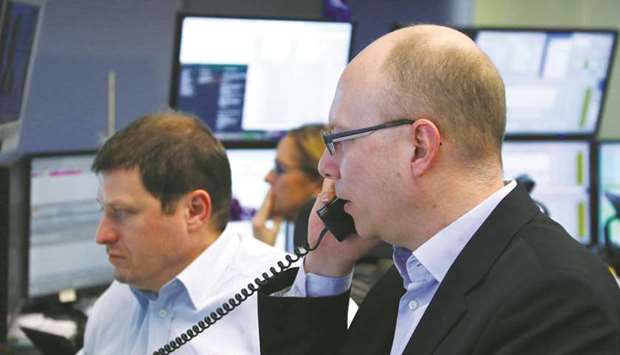European stock markets rose yesterday after the ECB unveiled a massive stimulus programme and cut interest rates to goose a sluggish eurozone economy.
The euro was volatile, dropping against the dollar in an initial reaction before recovering in late business.
The ECB took a key interest rate further into negative territory in its first rate cut since 2016 and announced it would resume stimulus via asset purchases at the rate of €20bn per month and cheap loans to banks.
While the quantitative easing (QE) stimulus amount may have been lower than some analysts expected, the tone of the ECB was more dovish.
“This commitment to more QE is open-ended: it will end shortly before the Bank begins raising interest rates,” said Andrew Kenningham, chief European economist at Capital Economics.
Meanwhile, the ECB said it wouldn’t raise interest rates until it saw inflation moving up towards its goal of just under 2% over the medium term.
Key eurozone stock markets were higher at the close thanks to the prospect of cheaper money.
London’s FTSE 100 was up 0.1% to 7,344.67 points, Frankfurt’s DAX 30 gained 0.4% to 12,410.25 and Paris’s CAC 40 rose 0.4% to 5,642.86 points at close yesterday.
But the euro, in the moments following the ECB’s announcement, fell more than a cent against the dollar, dropping below $1.10.
Then it recovered.
“The euro didn’t quite know what to make of the ECB’s newly announced stimulus package, a mixed bag parting gift from Italian stallion Mario Draghi,” said Connor Campbell at Spreadex.
Initially “the euro was shaken by the confirmation of the central bank’s long-suspected plans”, but then became “less concerned”, he said.
“That’s because the plans have been described as ‘less generous’ than first thought, with a certain amount of disappointment that the package wasn’t more robust,” he said.
Equity markets also found some support amid signs of easing trade-war tensions between China and the United States.
US President Donald Trump on Wednesday said he would delay hiking tariffs on some Chinese goods, just hours after Beijing announced it would remove a range of American products from its own planned levies.
China added yesterday it was “making enquiries” about buying American farm products including big-ticket products like pork and soybeans.
The more conciliatory tone – after months of rancour – fuelled hopes that they could edge towards solving their long-running trade war, which has jolted the global economy and stock markets.
Wall Street shares were modestly higher in morning New York business.
Elsewhere yesterday, oil prices extended recent losses as traders bet on a possible return of Iranian crude to the market after the firing this week of Trump’s hawkish national security adviser John Bolton eased fears of a conflagration in the Middle East.

Traders are seen at the Frankfurt Stock Exchange. The DAX 30 gained 0.4% to 12,410.25 points yesterday after the European Central Bank unveiled a massive stimulus programme and cut interest rates to goose a sluggish eurozone economy.
